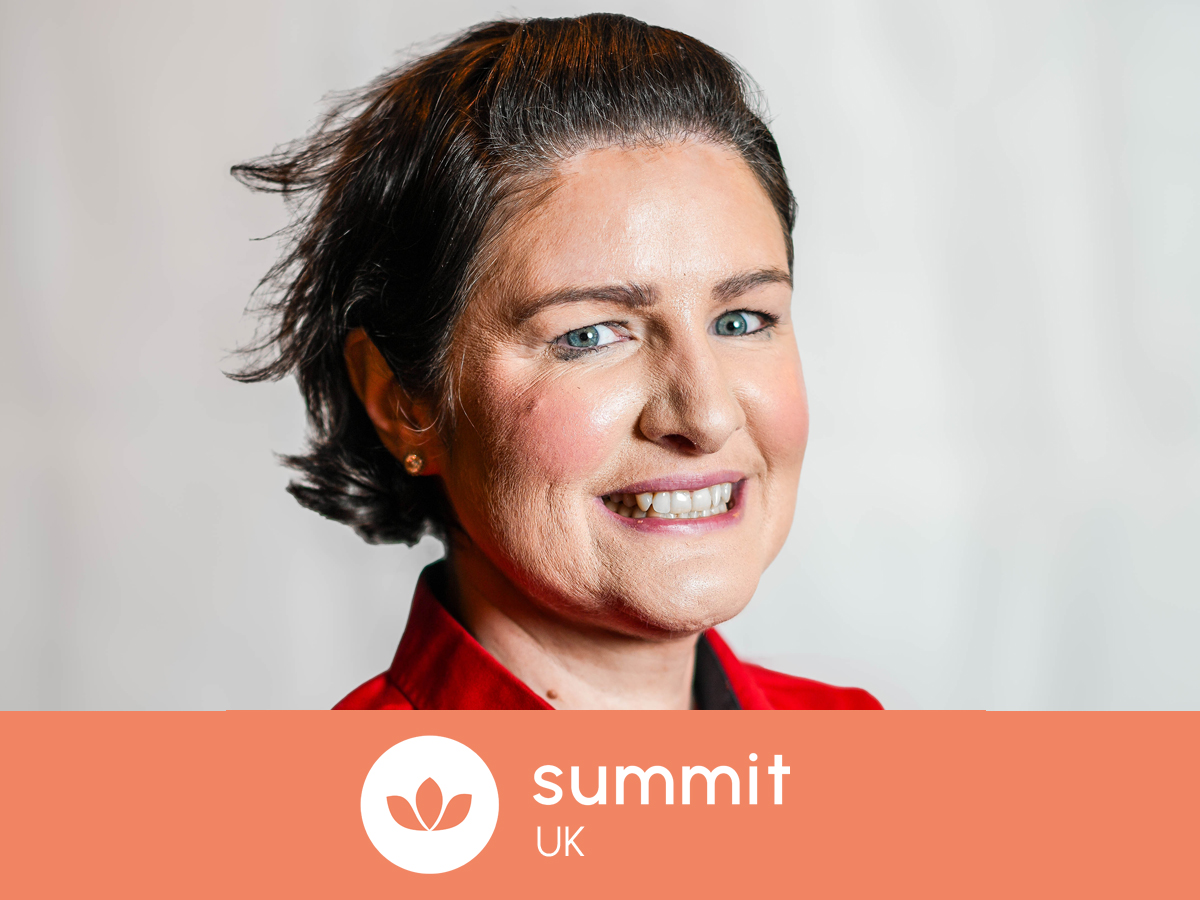
Katy Holmes led the British Chamber of Commerce Dubai’s transition from the long-established British Business Group Dubai & Northern Emirates. Katy has a proven track record in international trade & a wealth of expertise working with financial institutions, government agencies, MNCs & SMEs. Throughout Katy’s career, she has successfully developed valuable relationships & encouraged collaborations across borders, providing valuable guidance to businesses looking to expand their international reach & maximise their trade potential. Katy is passionate about encouraging & supporting people centric environments, building communities & promoting discussions around mental health and wellbeing.
We are delighted to announce that Katy will be speaking in Dubai this February as part of our Wellbeing at Work Summit Middle East. We caught up with her to find out how she’s feeling in the run up to the summit.
Hi Katy, we are thrilled you will be speaking at our Wellbeing at Work Summit Middle East in February. Our first and most important question is, how are you doing today?
I am writing this on my first day back into the office after the Christmas break so, for probably the only time I will say this this year, I am feeling rested! I also felt so grateful on my drive in to know that I would be ‘reunited’ with the rest of the team. We close the BCCD HQ for a full week in order that everyone takes a total break. As a small team, it’s very hard to really disconnect when there is any activity from the team. We also close for a week in the Summer.
As a leader based in the region, what are the main challenges you are facing when it comes to employee wellbeing and mental health?
In my observations and conversations with members, I would say that there is a very real struggle in managing the expectations and reality of hybrid working. As a result of the pandemic, we have lived a possible reality of working from home full time and whilst the majority would agree that there is huge value in office based working, there seems to be a ‘muddy middle’ whereby managers and employees are struggling to find the perfect balance with a hybrid working model in practice – and all of that uncertainty, trust and boundary issues will have a significant impact on employee and employer mental health!
What strategies have you seen developing over the past 6 months, both internally and externally, that are moving the dial on wellbeing in the workplace?
As with any implemented strategy, the measurement is so key and where I have seen the greatest and most significant difference is where there is a form of ‘pledge’ with regular check-ins. For example, Cigna Healthcare has a widely promoted 5% pledge across all of its markets encouraging senior leaders and people managers to support positive mental well being in the workplace by dedicating at least 5% of their time to improving the mental health and working environment for their team each day.
Why is employee wellbeing so important to you personally?
It’s a cliché but as we spend so much of our working lives at work, it’s incredibly important to ensure that you are spending time with people who are supportive of your growth, that there are constant opportunities to learn, and that you are operating in an environment that provides psychological safety. Having experienced both ends of that scale, it’s my absolute intention to avoid environments that are not genuinely people-centric and I am in the privileged position now to create that for others with a supportive Chair and Board of Directors.
What impact is AI having in your organisation and how are you managing that?
AI has already had a very positive impact on our organisation having recently ‘digitally transformed’ our entire back office and payments. The two main advantages that we have experienced are a hugely positive impact on our client experience and that the digital transformation has freed team time by reducing manual processes allowing for more strategic thinking time for continued growth of the team and the BCCD!
Other than AI, are there any challenges that you are seeing for the first time and how are you addressing them?
I believe the significant rise in the overall cost of living will be to the detriment of employee wellbeing and retention. The cost of living has increased across housing, food, transportation, school fees etc. The whole supply chain is under pressure to pass on their escalating costs to the client. Companies are struggling to keep up with compensating financially and those who really care about retention are attempting to provide alternative benefits however, as Dubai is currently such a candidate rich market, both the employer and employee realise that there isn’t a lot of negotiation room – even for the top performers.
What areas do you think employers should be focused on over the next 12 months?
Very simply – the focus should be on retention – retention of clients and retention of top talent! The immediate benefit of this is banking on crucial established relationships and knowledge and the longer term benefit is that loyal and valued clients and employees become your biggest advocates and naturally attract more clients and a happier workforce.
Do you feel that investment in employee wellbeing in the region is increasing or decreasing and is that a direct reflection on HR leaders’ increasing ability to demonstrate effective returns of their strategies to leadership?
I believe that there has been a growing recognition of the importance of investing in employee wellbeing – in the last 18 months particularly – but now that it is such a candidate rich market it may overshadow the efforts and potentially result in a drop in the investment and energy that it was accumulating.
How has your organisation been leading the way?
As a membership organisation, the wellbeing of our employees is absolutely critical to be able to provide the optimal experience to our stakeholders. Therefore, investing in the team’s wellbeing is a fundamental commitment that in turn pays back measured in new members, retention and brand recognition. Each employee has the autonomy to work on their area of expertise and feels supported (not micro-managed!), we have excellent interoperability and everyone has an appreciation for all areas of the business. We also ‘rest with purpose’ as a small team (under 10) we only ever truly disconnect when the office is closed and no one is working and producing activity. For the past three years we have successfully closed down the office for one week in the Summer and one week in December. This is in addition to the holiday entitlement and seen as a benefit to the BCCD in that the team is well rested to then manage over 70 events a year, over 1000 members and multiple stakeholders. It genuinely is my privilege to work with such conscientious and hardworking colleagues.
We also heavily promote best practice in employee wellbeing, signposting and sharing examples through our e-newsletter and at events to incite empathic behaviours aross the British business community.
Katy will be speaking in Dubai at the Wellbeing at Work Summit Middle East which takes place in Riyadh, Dubai, Cairo and virtually. Further details on the Summit can be found here.



